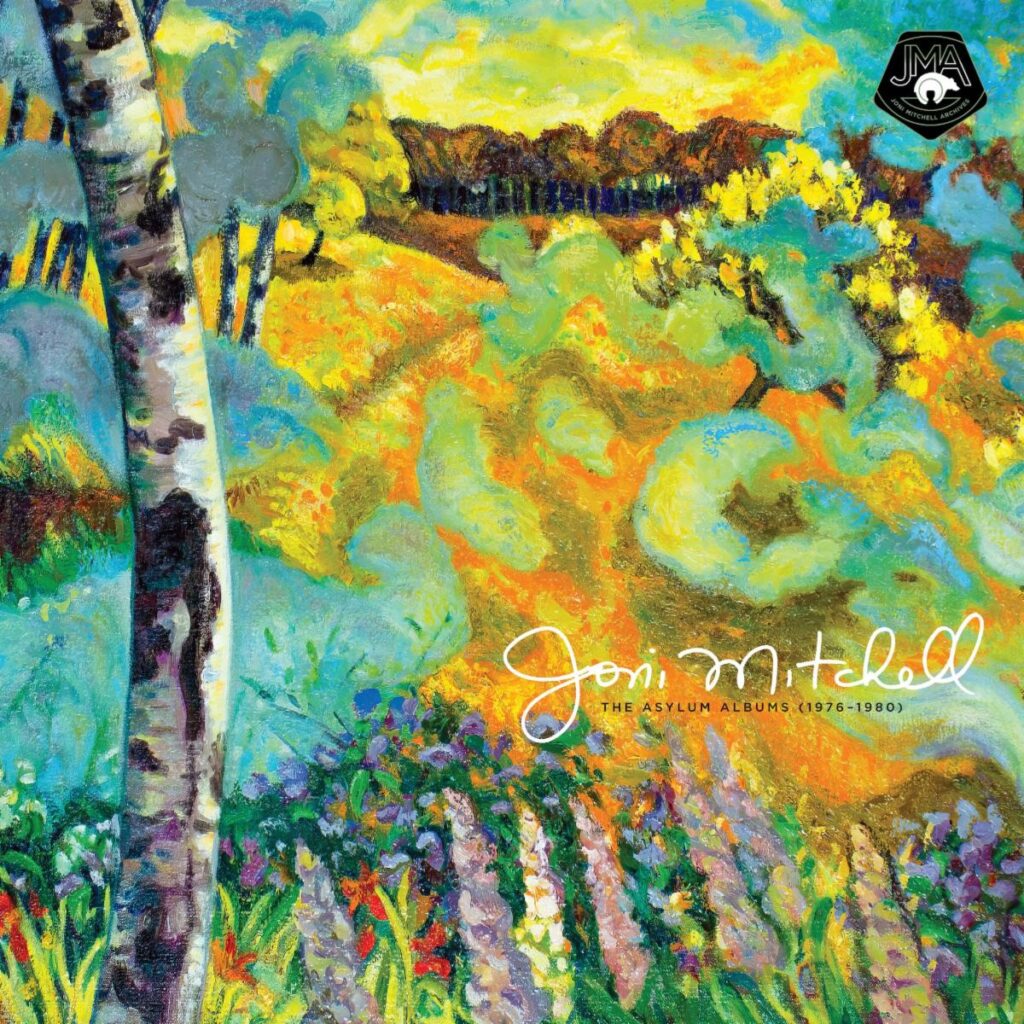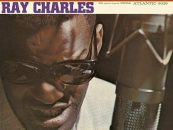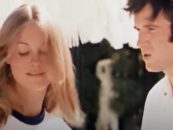 The third in a series of boxed sets of Joni Mitchell’s studio LPs includes four trailblazing LPs: Hejira, Don Juan’s Reckless Daughter, Mingus and Shadows and Light. Called The Asylum Albums (1976-1980), the box comes with a new appreciative essay by Meryl Streep. Like the earlier The Reprise Albums (1968-1971) and The Asylum Albums (1972–1975), it features remastered audio and reproductions of the original LP covers (complete with lyrics, though you’ll probably need a magnifying glass to read them). There are, however, no bonus tracks; those are reserved for a must-hear separate series called Joni Mitchell Archives that has so far produced three volumes: The Early Years (1963-1967), The Reprise Years (1968-1971) and The Asylum Years (1972-1975).
The third in a series of boxed sets of Joni Mitchell’s studio LPs includes four trailblazing LPs: Hejira, Don Juan’s Reckless Daughter, Mingus and Shadows and Light. Called The Asylum Albums (1976-1980), the box comes with a new appreciative essay by Meryl Streep. Like the earlier The Reprise Albums (1968-1971) and The Asylum Albums (1972–1975), it features remastered audio and reproductions of the original LP covers (complete with lyrics, though you’ll probably need a magnifying glass to read them). There are, however, no bonus tracks; those are reserved for a must-hear separate series called Joni Mitchell Archives that has so far produced three volumes: The Early Years (1963-1967), The Reprise Years (1968-1971) and The Asylum Years (1972-1975).
The Asylum Albums (1976-1980) covers a particularly adventurous chapter of Mitchell’s story. She had already flirted with jazz on 1974’s Court and Spark and 1975’s The Hissing of Summer Lawns. She continued down that road with 1976’s Hejira, the oldest album in the new box, which prominently features the late jazz bassist Jaco Pastorius on four of its nine tracks and includes contributions from such other jazz-leaning artists as saxophonist Tom Scott and guitarist Larry Carlton. The best cut is the rhythmic lead-off number, “Coyote,” which artfully limns a one-night stand. But the other songs—most of which address romantic liaisons and/or life on the road—are uniformly first-rate.
Related: Our review of Mitchell’s Archives, Volume 3
While Mitchell has one foot in the jazz world on Hejira and its two predecessors, she’s all-in with that genre on 1977’s Don Juan’s Reckless Daughter, a somewhat less successful album, commercially and critically, that nevertheless merits attention. It includes such off-the-beaten-path excursions as “The Tenth World,” seven minutes of Latin percussion that sounds like nothing else in Mitchell’s catalog, and the 16-minute “Paprika Plains,” which features improvisational piano and a full orchestra.
Her next album consists largely of collaborations with the late, great Charles Mingus. Called Mingus, this 1979 release opens with Mitchell and others singing “Happy Birthday” to the jazz bassist and composer. It includes three new numbers for which he wrote the music and she wrote the lyrics; a new version of Mingus’ famous “Goodbye Pork Pie Hat” for which Mitchell added words; a couple of her own new songs; and several spoken interludes labeled “Raps.” Mingus, who died while the album was being made, doesn’t play on it, but it features several jazz luminaries, among them Pastorius, saxophonist Wayne Shorter and pianist Herbie Hancock.
Also in the box is the two-CD Shadows and Light, a 1980 live album. While Miles of Aisles, the concert record in the previous box in this series, focused on Mitchell’s early work, this set sticks mostly to material from Hejira, Mingus and Don Juan’s Reckless Daughter, though it does make room for a few earlier standouts, such as “Free Man in Paris” and “Woodstock.” Again, Mitchell calls on jazz greats for backup, including Pastorius, guitarist Pat Metheny, saxophonist Michael Brecker and keyboardist Lyle Mays. And she sounds like a jazz singer throughout with one notable exception: an out-of-character but enjoyable rendition of “Why Do Fools Fall in Love?,” the 1956 doo-wop hit by Frankie Lymon and the Teenagers, for which she is joined by the vocal group the Persuasions.
That performance—like virtually everything on the four albums in this box—offers a reminder that Mitchell has long refused to be pigeonholed or to take the safe road. She undoubtedly could have had a great career churning out more of the wonderful acoustic folk that filled her earliest albums. Instead, she followed her muse in multiple directions, taking one chance after another, and most of the time, succeeding brilliantly.
The box is available in the U.S. here and in the U.K. here.
Related: Mitchell’s life and career are the subject of a 2024 book, Traveling: On the Path of Joni Mitchell






No Comments so far
Jump into a conversationNo Comments Yet!
You can be the one to start a conversation.